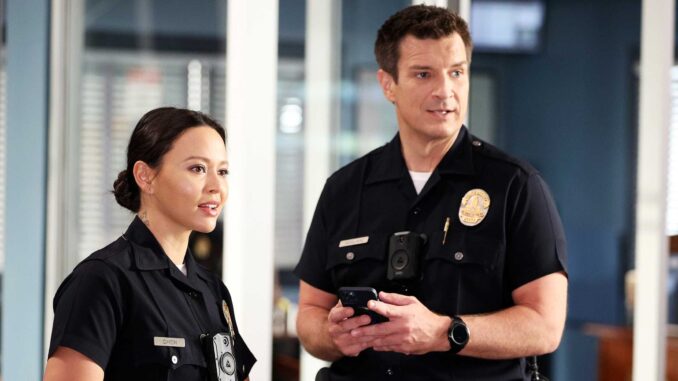
The Proven Blueprint: Why "The Rookie: Feds" Holds a Winning Hand
The television landscape is a graveyard of good intentions, littered with spinoffs that failed to capture the magic of their predecessors. For every Frasier or Better Call Saul, there are countless others that vanished into syndication obscurity. Launching a new show, even with a recognizable name attached, is a high-stakes gamble. Yet, for "The Rookie: Feds," the spinoff of ABC’s popular "The Rookie," the odds are dramatically skewed in its favor, thanks to one key advantage: the inherited, proven narrative framework and tonal blueprint of its predecessor.
Imagine a seasoned chef opening a new restaurant. While the menu might be different, and the location distinct, the chef already possesses a signature dish, a perfected recipe, and a loyal clientele who trust their culinary sensibilities. They aren't starting from scratch, fumbling with ingredient combinations or hoping a new concept will resonate. They are building on a legacy of proven success. This is precisely the position "The Rookie: Feds" occupies. It didn't need to invent a wholly new concept for its audience; it merely needed to adapt one that had already been extensively road-tested and widely embraced.
The original "Rookie," starring Nathan Fillion as John Nolan, tapped into a universally relatable narrative: the underdog pursuing a dream later in life, battling ageism, self-doubt, and the steep learning curve of a demanding profession. It struck a unique balance between lighthearted humor, genuine drama, and a humanizing look at law enforcement, often addressing timely social issues with nuance. This wasn't just a cop show; it was a character-driven journey of self-discovery and perseverance. This robust, adaptable framework is the golden ticket for the spinoff.
"The Rookie: Feds" takes this existing blueprint and simply shifts the setting and the specific challenges. Instead of an aging LAPD rookie, we get Simone Clark (Niecy Nash-Betts), the oldest rookie in the FBI Academy. The core conflict – an experienced individual navigating a new, demanding, and youth-dominated environment – remains perfectly intact. The established tone of balancing high-stakes cases with personal growth, camaraderie, and a touch of comedic relief is immediately recognizable. This means the show doesn't have to spend precious early episodes trying to define its identity or convince viewers of its premise's viability. The audience already knows what to expect, and more importantly, they know it works.
This pre-validated concept provides an enormous advantage in two critical areas: audience acquisition and creative consistency. Firstly, a substantial portion of "The Rookie"’s existing fanbase is already primed to tune in. The original show laid the groundwork with a backdoor pilot, introducing Simone Clark and her world, creating a seamless transition. This isn't just a numerical boost; it's an audience that is already familiar with the parent show's pacing, character archetypes, and thematic interests, making them more likely to become loyal viewers of the spinoff. Marketing becomes less about introducing a novel idea and more about promoting an exciting extension of an already beloved franchise.
Secondly, for the creative team, having this established narrative scaffolding is invaluable. They understand the "rules" of this universe: how to balance procedural elements with character arcs, how to inject humor without undermining drama, and how to tackle sensitive topics with the show's signature approach. They're not experimenting in the dark; they're building upon a sturdy foundation. This allows them to focus their energy on developing unique cases, exploring the specific challenges of the FBI, and fleshing out Simone's distinctive personality and backstory, rather than reinventing the wheel.
Of course, a strong foundation doesn't guarantee success. The execution must still be top-notch, the writing sharp, and the performances compelling. Yet, by inheriting the battle-tested, audience-approved narrative blueprint of "The Rookie," the spinoff "The Rookie: Feds" starts miles ahead of any entirely new series. It benefits from a pre-sold concept, a built-in audience, and a clear understanding of its own identity before the first episode even airs. In the cutthroat world of television, that isn't just an advantage; it's a strategic masterstroke that positions it perfectly to become a huge success.